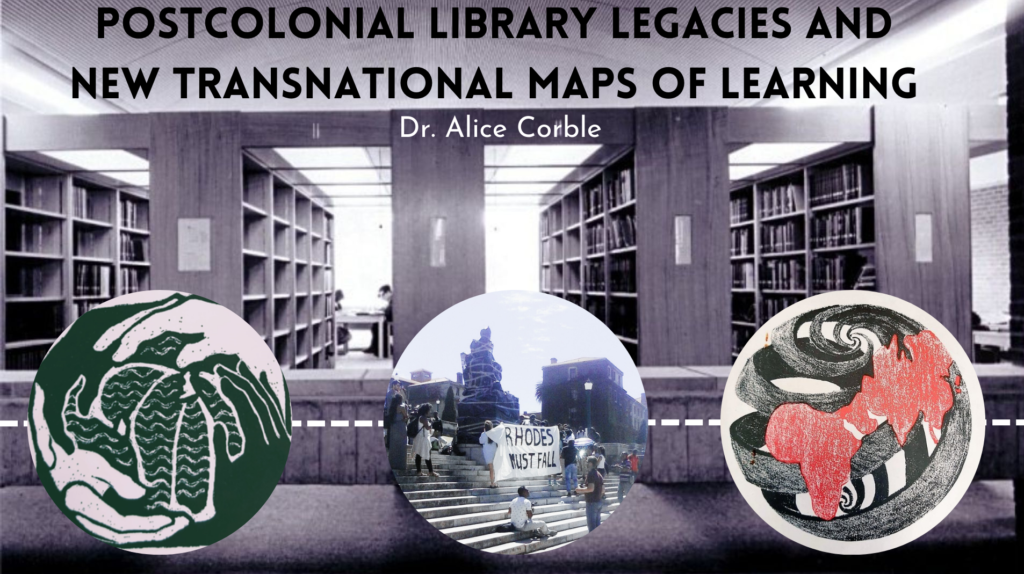PI: Dr Alice Corble, Department of International Development, University of Sussex

Dr. Alice Corble
Since 2015, when the ‘Rhodes Must Fall’ student-led movement erupted at the University of Cape Town, calls to decolonise universities have gained traction internationally. Yet there have been few tangible outcomes for British universities, with widespread misunderstanding and controversy about what ‘decolonising’ means in academic contexts. A recent Higher Education Policy Institute report underlines this and calls for urgent action to address a ‘silent crisis’. This project addresses this problem by evidencing two key overlooked dimensions that underpin it: (i) the historical geopolitical dynamics of international university development between Britain and the rest of the world, and (ii) the crucial role of libraries and archives in shaping and mediating the colonial roots and legacies of global knowledge production and education.
The University of Sussex and its Library and Archive are key nodes in transnational networks of postcolonial HE development, based on Sussex’s position as the first of Britain’s ‘new universities’ established in 1961 with a local and global mission to draw ‘a new map of learning’ in contexts of shifting race relations via development of Commonwealth states and new patterns of immigration. My previous AHRC-RLUK-funded research (University of Sussex Library, 2022-23) has demonstrated significant legacy connections between Sussex and the University of the West Indies and various South African universities, libraries, and scholar-activist movements. The present project builds on these findings via a multi-sited ethnographic study of these transnational field sites, exploring past and present politics and material conditions of education and knowledge production.
This path-breaking project bridges disciplinary gaps and makes the case for HE institutions to take their colonial histories seriously by understanding the integral role of libraries and communities in both mediating, shaping and repairing these legacies. The project outputs will include publications and open educational resources co-produced with research participants in Caribbean and South African academic, archival and activist communities. These outputs will combine to form new global maps of learning that make visible and audible cartographies of knowledge and power that trace both epistemically violent pasts and reparative, fertile futures.

